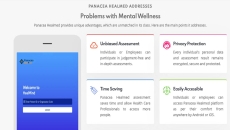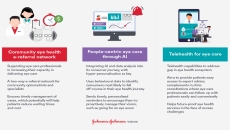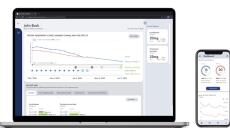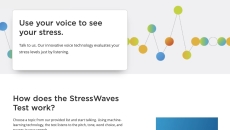AI
Also, Ujala Cygnus opens an ICU telemedicine facility in New Delhi.
Net Health announced two AI-powered tools that could reduce the risk of amputations and predict wound healing time.
The online platform offers a range of mental health assessment tools for healthcare groups, corporations and other enterprises.
It will implement digital initiatives such as telehealth and an AI-powered eye care service.
Holmusk will help UTHealth and The Harris Center in creating longitudinal patient records.
Ultromics’ EchoGo Core and EchoGo Pro platforms use AI-enabled echocardiograms to help physicians access heart function.
SoundPass uses artificial intelligence to create a biometric perimeter security bubble around workplaces, entertainment and consumer venues, and college campuses.
Cigna International and Ellipsis Health have joined hands to develop the free AI-powered tool.
Also, Berry Oncology scored $99 million in a latest funding round.
Abbott has received clearance from the FDA for its imaging software that uses artificial intelligence to provide doctors a better view of blood flow and blockages in heart vessels.









